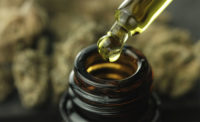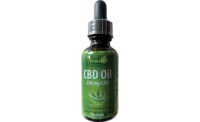Editor’s Note
Cannabis and the FDA

When I was growing up, as many of you I’m sure, I would never have guessed that cannabis would be legalized. Back then it was taboo, worse than alcohol and seen as another drug on the streets. Remember the commercial, “This is your brain on drugs,” with the eggs frying in a pan?
Fast forward to today, where it’s not only in many foods and beverages, but in your local Walgreen’s and other retail stores. It’s now mainstream — sort of. What does that mean for packaging? It depends on whom you ask. States can legalize on their own, but the federal government still has jurisdiction when purchasing, selling or transporting between state lines (interstate commerce).
There are many regulations from the U.S. Food and Drug Administration for foods, beverages and pharmaceuticals. In fact, the FDA just held a public hearing May 31, 2019, on scientific data and information about products containing cannabis and cannabis-derived compounds. This is an excerpt by Dr. Norman E. Sharpless, Acting Commissioner of Food and Drugs, FDA from the hearing:
“If delta-9-tetrahydrocannabinol (THC) or cannabidiol (CBD), or the plant itself, is added to a food or cosmetic, marketed as a drug or otherwise added to an FDA-regulated product in interstate commerce, it falls within FDA’s jurisdiction.
Some compounds found in cannabis — specifically, CBD and THC — have been studied and even approved as drugs. Note that the Federal Food, Drug & Cosmetic Act prohibits adding drugs to human or animal food in interstate commerce.
There are a lot of questions we will need to answer to ensure it is taking an appropriate, well-informed and science-based approach to the regulation of cannabis and cannabis derivatives, including CBD.”
Some questions that the FDA has are: How much CBD is safe to consume in a day? What if someone applies a topical CBD lotion, consumes a CBD beverage or candy, and also consumes some CBD oil? How much is too much? How will it interact with other drugs the person might be taking? What if she’s pregnant? What if children access CBD products like gummy edibles? What happens when someone chronically uses CBD for prolonged periods?
The FDA has formed an internal working group to address the data gaps specifically. For the entire report from the hearing and new updates, visit fda.gov/news-events.
So, what does this mean? It’s still dicey — especially when brands want to purchase/sell or transport between state lines. And for now it’s legal to sell CBD products online in all 50 states, as long as the oil is sourced from industrial hemp and the THC content is below 0.3%.
KRISTEN KAZARIAN
Looking for a reprint of this article?
From high-res PDFs to custom plaques, order your copy today!






